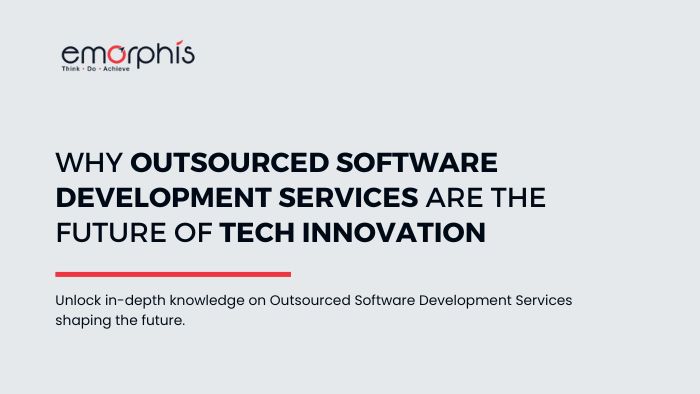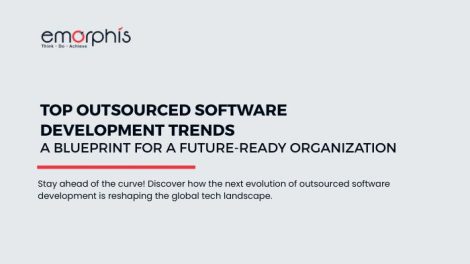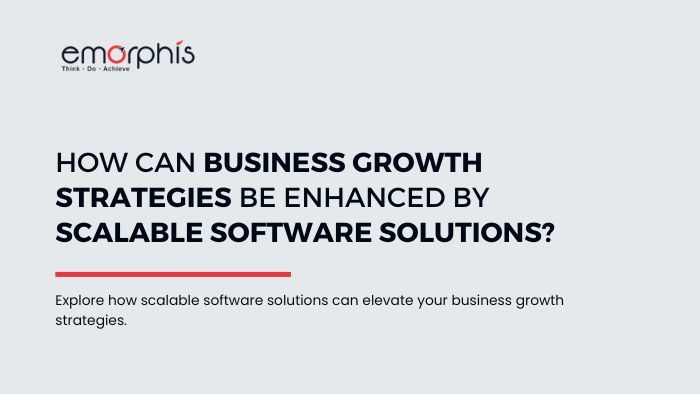Outsourced software development services are reshaping the technology landscape. As businesses strive for innovation, efficiency, and scalability, these services become crucial to the tech ecosystem. This article will explore why Outsourced Software Development Services is not just a trend but a cornerstone of future tech innovation.
The market share of Outsourced Software Development Services has seen remarkable growth in recent years. In fact, according to industry reports, the global outsourcing market is projected to expand significantly by 2025. This growth is driven by the increasing need for specialized skills and cost-effective solutions.
Major companies have harnessed the power of Outsourced Software Development Services to achieve substantial benefits.
For example:
- Google: By outsourcing certain software development projects, Google has been able to leverage global talent and accelerate innovation, leading to the rapid development of new features and products.
- IBM: IBM utilizes outsourced teams to handle complex software solutions and support their vast product portfolio, enabling them to focus on core research and development.
- Microsoft: Through outsourcing, Microsoft gains access to cutting-edge technologies and skilled professionals, helping them maintain a competitive edge in the software industry.
Because these companies have experienced the benefits firsthand, the trend toward outsourcing has only intensified. Furthermore, outsourcing helps organizations stay agile, reduce costs, and tap into a diverse talent pool.

In-House vs. Outsourced Software Development Services
Here’s a detailed comparison of In-House vs. Outsourced Software Development Services presented in a table format:
Aspect | In-House Software Development | Outsourced Software Development Services |
Cost | Higher due to salaries, benefits, and overheads. | Generally lower due to reduced overheads and access to global talent. |
Expertise | Limited to the skills and experience of the internal team. | Gain access to a broad spectrum of expertise and specialized skills. |
Control | Greater control over project management and daily operations. | Less direct control but managed through contracts and regular updates. |
Flexibility | Less flexible; harder to scale up or down quickly. | More flexible; easy to scale resources up or down as needed. |
Time-to-Market | Potentially longer due to hiring and training time. | Faster due to established teams and processes. |
Quality | Dependent on the skills and experience of the in-house team. | High quality is achievable with the right outsourcing partner. |
Risk Management | More control over risk management and mitigation. | Risks are managed through contracts and service level agreements (SLAs). |
Innovation | Limited by internal resources and perspective. | Access to cutting-edge technologies and innovative approaches. |
Focus on Core Business | May divert attention from core business activities. | Allows focus on core business while leveraging external expertise. |
Cultural Fit | Often more aligned with company culture and values. | Potential cultural differences; are managed through clear communication. |
Maintenance and Support | In-house teams can provide ongoing support and maintenance. | Ongoing support is provided through service contracts. |
Initial Setup | Longer setup time due to recruitment and training. | Quicker setup with an already skilled and experienced team. |
Scalability | Limited by team size and internal capacity. | Easily scalable with the ability to adjust team size as needed. |
Communication | Direct and immediate communication within the organization. | Communication is managed through regular updates and project management tools. |
Hence here is what we have learned.
- In-house development offers greater control, alignment with company culture, and direct communication but can be costlier and less flexible.
- Outsourced Development Services provide access to specialized skills, cost savings, flexibility, and faster time-to-market but involve less direct control and potential cultural differences.
Choosing between in-house and outsourced software development depends on your specific needs, resources, and business goals.
The Role of Outsourced Software Development Services in Scaling a Business
Scaling a business requires strategic planning and execution. Outsourced Software Development Services play a critical role in this process:
- Speed: Outsourcing enhances development efficiency, enabling businesses to launch products more rapidly. In fact, many companies experience a reduction in time-to-market by partnering with outsourcing firms.
- Innovation: Outsourced teams bring fresh perspectives and innovative ideas that can drive business growth. Because these teams are often up-to-date with the latest trends, they can contribute to cutting-edge solutions.
- Resource Management: By outsourcing, businesses can allocate their internal resources more effectively, focusing on strategic initiatives while the outsourced team handles technical tasks.
Furthermore, outsourcing supports scaling by providing access to a global talent pool, which is essential for managing increased demand and expanding operations. Moreover, outsourcing partners can quickly adapt to changing business needs, ensuring that your scaling efforts are supported efficiently.
Top 10 Pitfalls to Avoid When Selecting Outsourced Software Development Services
Selecting the right outsourced software development partner is essential for achieving success. Avoid these common mistakes:
- Lack of Clear Objectives: Without clear goals, projects can go off track. Define your objectives from the start to ensure alignment with your outsourcing partner.
- Insufficient Research: Neglecting to conduct comprehensive vendor assessments can result in subpar outcomes. Research their track record, expertise, and client reviews.
- Poor Communication: Effective communication is key to successful outsourcing. Ensure that there is a clear communication plan in place to avoid misunderstandings.
- Ignoring Cultural Fit: Cultural differences can impact collaboration. Opt for a partner whose values and work approach align with your organization’s culture.
- Neglecting Legal Aspects: Address legal considerations such as intellectual property rights and confidentiality agreements to protect your interests.
- Overlooking Technical Skills: Ensure that the outsourcing partner has the technical expertise required for your project. Evaluate their skill set and experience.
- Not Defining Deliverables: Clearly outline project deliverables and milestones to avoid scope creep and ensure timely completion.
- Focusing Solely on Cost: While cost is important, it should not be the only factor. Consider the quality and value of the services provided.
- Lack of Flexibility: Choose a partner that can adapt to changes in project scope and requirements. Flexibility is essential for successful outsourcing.
- Ignoring Post-Project Support: Ensure that the outsourcing partner offers support after project completion to address any issues that may arise.
By avoiding these mistakes, you can maximize the benefits of Outsourced Software Development Services and achieve successful project outcomes.
Tech Innovations in Trend
Tech innovations are continually reshaping the industry landscape, and Outsourced Software Development Services are at the heart of these transformations. Here’s a closer look at the latest trends driving the tech world and how outsourcing is essential for capitalizing on these advancements:
1. Artificial Intelligence (AI)
AI is revolutionizing industries by automating processes and providing sophisticated data analysis. According to Statista, the global AI market is projected to reach $190 billion by 2025. Outsourced Software Development Services are vital for developing AI-driven solutions such as advanced chatbots, predictive analytics, and personalized recommendations. In fact, companies leveraging AI often see a 15-20% increase in efficiency and productivity. Because AI technology evolves rapidly, partnering with outsourcing experts ensures access to cutting-edge innovations and maintains a competitive edge.
Find details on AI in Software Development.
2. Internet of Things (IoT)
The IoT connects devices, creating a network of smart, interconnected objects that can communicate and act autonomously. The global IoT market is projected to grow from $381 billion in 2022 to $1.1 trillion by 2028, according to Grand View Research. Outsourced Software Development Services are crucial for developing IoT applications ranging from smart home devices to industrial IoT solutions. Because IoT projects involve complex integration and ongoing maintenance, outsourcing provides access to specialized skills that ensure successful implementation and management.
Find a guide on IoT solutions development.
3. 5G Technology
5G is poised to transform connectivity with its promise of faster speeds and lower latency. MarketsandMarkets reports that the global 5G market is expected to expand from $74 billion in 2023 to $280 billion by 2028. Outsourced teams are essential in developing applications and infrastructure that leverage 5G capabilities, such as real-time data processing and enhanced mobile experiences. In fact, 5G is predicted to support up to 1 million devices per square kilometer, unlocking new possibilities for innovative solutions. By partnering with outsourcing experts, businesses can harness the full potential of 5G technology and stay ahead of the curve.
4. Augmented Reality (AR) and Virtual Reality (VR)
AR and VR are transforming user experiences with immersive and interactive content. According to Statista, the global AR and VR market is projected to reach $120 billion by 2026. Outsourcing firms provide the expertise needed to develop AR and VR applications, from immersive gaming experiences to virtual training environments. Because these technologies are rapidly evolving, outsourcing ensures that businesses have access to the latest tools and techniques for creating cutting-edge applications. In fact, businesses using AR and VR technologies have reported a 30% increase in user engagement and satisfaction.
5. Edge Computing
Edge computing processes data near its source, minimizing latency and enhancing performance. The edge computing market is forecasted to grow from $40 billion in 2023 to $125 billion by 2028, according to a report by Research and Markets. Outsourced Software Development Services are crucial for designing and implementing edge computing solutions that support real-time data analysis and improved operational efficiency. Furthermore, edge computing is expected to reduce latency by up to 75%, making it a key technology for applications requiring fast and reliable data processing. By leveraging outsourcing, businesses can effectively integrate edge computing technologies and enhance their capabilities.
6. Cybersecurity Innovations
As cyber threats become increasingly sophisticated, advanced cybersecurity measures are essential. The global cybersecurity market is anticipated to grow from $205 billion in 2023 to $340 billion by 2028, as reported by MarketsandMarkets. Outsourced teams play a critical role in developing and implementing robust cybersecurity solutions, including threat detection, response systems, and vulnerability assessments. Because cybersecurity is a constantly evolving field, partnering with outsourcing experts ensures that businesses remain protected against emerging threats and maintain a strong security posture. In fact, companies investing in advanced cybersecurity measures often experience a 40% decrease in security incidents.
Find more details on Cybersecurity Consulting Services.
In summary, staying ahead of tech innovations is vital for maintaining a competitive advantage. Outsourced Software Development Services provide the expertise and resources needed to leverage these emerging technologies effectively. By embracing the latest trends through outsourcing, businesses can enhance their capabilities, drive innovation, and achieve long-term success.
Ultimate Guide to Outsourced Software Development Services
Outsourced Software Development Services are becoming increasingly vital for businesses aiming to stay competitive and innovative in today’s tech-driven world. This comprehensive guide will walk you through the essential aspects of outsourcing software development, offering practical tips and insights to help you maximize the benefits of these services.
Step 1. Define Your Objectives Clearly
Before diving into outsourcing, it’s crucial to define your objectives clearly. Understanding what you need from Outsourced Software Development Services helps ensure that you select the right partner and achieve your goals efficiently. Setting clear objectives, in fact, ensures alignment between project scope, deliverables, and expectations.
- Identify Project Goals: Outline what you aim to achieve with the project. Are you developing a new product, enhancing an existing solution, or integrating new features?
- Specify Requirements: Clearly define the technical and functional needs of the project. This includes the technology stack, performance metrics, and user requirements.
- Set Milestones: Establish key milestones and deadlines to track progress and ensure timely delivery.
By having a well-defined project plan, you can communicate your needs effectively and avoid potential pitfalls.
Step 2. Evaluate Potential Partners Thoroughly
Selecting the right outsourcing partner is crucial to your project’s success. Here’s how to evaluate potential Outsourced Software Development Services providers:
- Assess Experience and Expertise: Look for partners with a proven track record in your industry and expertise in the technologies relevant to your project. For example, if you need AI development, choose a provider with experience in machine learning and data science.
- Check References and Reviews: Read client reviews and ask for references to gauge the provider’s reliability and quality of work. In fact, a strong portfolio and positive feedback are good indicators of a successful partnership.
- Evaluate Technical Capabilities: Ensure the provider has the necessary technical skills and resources to meet your project requirements. This includes assessing their team’s proficiency with relevant programming languages and tools.
Thorough evaluation helps mitigate risks and ensures you partner with a provider capable of delivering high-quality results.
Step 3. Establish Clear Communication Channels
Effective communication is key to successful outsourcing. Establishing clear communication channels helps prevent misunderstandings and ensures smooth collaboration:
- Develop a Communication Plan: Outline how and when communication will take place. This includes setting up regular meetings, progress reports, and feedback sessions.
- Use Collaboration Tools: Utilize project management and collaboration tools like Slack, Trello, or Jira to facilitate real-time communication and track project progress.
- Define Roles and Responsibilities: Clearly define the roles and responsibilities of both your internal team and the outsourcing partner to avoid overlap and confusion.
Clear communication ensures both parties remain aligned and can promptly resolve any issues.
Step 4. Set Expectations and Define Deliverables
Clearly defining expectations and deliverables is crucial for a successful outsourcing engagement:
- Detail Project Scope: Outline the project scope, including features, functionalities, and technical specifications. In fact, a clearly defined scope helps avoid scope creep and keeps the project on course.
- Agree on Deliverables: Specify the deliverables and deadlines. This includes milestones, final outputs, and any documentation required.
- Establish Quality Standards: Define the quality standards and acceptance criteria for the project deliverables to ensure they meet your expectations.
Setting clear expectations helps manage both parties’ expectations and ensures that the project meets the desired outcomes.

Step 5. Monitor Progress and Manage Performance
Regularly monitoring progress and managing performance is essential for ensuring project success:
- Track Progress: Utilize project management tools to monitor the project’s advancement against set milestones and deadlines. In fact, regular progress tracking helps identify and address issues early.
- Provide Feedback: Offer constructive feedback to the outsourcing team to address any issues and improve the quality of work. Because timely feedback is crucial for continuous improvement, ensure it is clear and actionable.
- Assess Performance: Evaluate the performance of the outsourcing partner based on key metrics such as adherence to deadlines, quality of deliverables, and communication effectiveness.
Effective monitoring and management help ensure that the project stays on track and meets your objectives.
Step 6. Build a Strong Relationship
Cultivating a strong relationship with your outsourcing partner promotes collaboration and trust.
- Foster Collaboration: Encourage a collaborative approach by involving the outsourcing team in decision-making and problem-solving processes.
- Respect Cultural Differences: Be mindful of cultural differences and work styles. In fact, understanding and respecting these differences can enhance teamwork and communication.
- Maintain Transparency: Keep the lines of communication open and be transparent about your expectations, feedback, and any changes in project scope.
A solid partnership leads to a more efficient and successful outsourcing experience.
Step 7. Evaluate ROI and Adjust Strategies
Assessing the return on investment (ROI) and adjusting strategies is crucial for optimizing the benefits of Outsourced Software Development Services:
- Measure ROI: Evaluate the ROI by comparing the costs of outsourcing with the benefits achieved, such as improved efficiency, reduced time-to-market, and enhanced product quality. In fact, businesses that invest in outsourcing often see a significant return on their investment.
- Adjust Strategies: Based on the ROI assessment, make any necessary adjustments to your outsourcing strategy. This might include changing the provider, refining the project scope, or adjusting communication methods.
Evaluating ROI helps ensure that you achieve the desired outcomes and make informed decisions for future projects.
Cost-Effective Outsourced Software Development Services: How to Maximize ROI
Maximizing ROI with Outsourced Software Development Services involves several strategies:
- Choose the Right Partner: Select an outsourcing firm that offers high-quality services at a competitive price. In fact, partnering with the right vendor can lead to significant cost savings.
- Negotiate Contracts: Negotiate favorable contract terms to ensure that you get the best value for your investment. Because outsourcing can involve various pricing models, choose the one that aligns with your budget and needs.
- Leverage Time Zones: Utilize time zone differences to your advantage. Outsourcing partners in different regions can work on your project around the clock, accelerating development and reducing time-to-market.
- Focus on Core Competencies: By outsourcing non-core activities, you can allocate your internal resources to strategic initiatives that drive growth and innovation.
Moreover, consistently tracking and assessing your outsourcing partner’s performance is key to maximizing ROI. Regularly assess the outcomes of the project and adjust as needed to ensure that you achieve the desired results.
Furthermore, find details of creating and testing the market for the ROI of new digital products in the guide to MVP Development.
Conclusion
In conclusion, Outsourced Software Development Services are poised to play a pivotal role in the future of tech innovation. By providing access to specialized skills, cost-effective solutions, and cutting-edge technologies, outsourcing is transforming how businesses approach software development. In fact, companies that embrace these services will be better positioned to innovate, scale, and compete in the rapidly evolving tech landscape. Given the numerous benefits of outsourcing, it is a strategic decision that can fuel long-term growth and success.

At Emorphis Technologies, we understand that navigating the complexities of software development—whether in-house or outsourced—requires expert guidance and tailored solutions. Our team of experienced professionals provides top-notch Outsourced Software Development Services that align with your unique business needs.
With a focus on innovation, efficiency, and quality, we offer a range of services designed to accelerate your projects and drive growth. By partnering with us, you gain access to a diverse pool of skilled experts who are well-versed in the latest technologies and best practices. Our commitment to clear communication, flexibility, and client satisfaction ensures that your projects are executed seamlessly and successfully.
To learn more about how Emorphis Technologies can help elevate your software development efforts, connect with our experts today and discover how we can turn your vision into reality.







